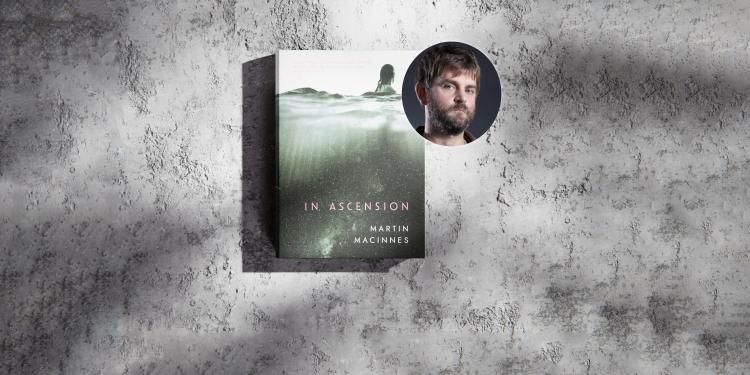To what extent would you say In Ascension should be read as a novel about relationships and connections - humanity’s relationship with the natural world; family relationships that can’t be broken, however far we travel; the interconnectedness of all things? And what made you want to explore such connections?
That’s 100% true. You could argue the whole novel is about symbiosis, the theory that life thrives amid other life (and which has been underplayed in many popular and more aggressive accounts of evolution). And yet Leigh spends most of her time alone. That’s one of the ironies of the novel, and one of its driving energies. She can’t be other than she is – she’s not going to suddenly go around hugging people – and so she seeks out integration and satisfaction and recognition in other ways. Ideally the sense of wonder she feels from the natural world should not be a dead end, but rather lead to empathy, care, alertness. Communication. Leigh grapples with this; other people have caused her pain, and the single-mindedness of her interest in the natural world has kept her alive – should she risk upturning this?
I’m exploring interconnectedness because it’s vital and relatively absent from English language fiction, too much of which draws a world in which humanity is walled off from the rest of creation, as if we were entirely self-involved, made from some other, more rarefied kind of stuff. This echoes and reinforces climate change complacency, and is dangerous. Addressing this in fiction is not just, for me, a moral imperative, it’s an artistic opportunity and a source of humility and joy.
Leigh is a solitary figure, and her work takes her to places of isolation. Would you say there’s a sense of remoteness in your work generally, with characters separated from wider society? And if so, where does that come from?
If characters begin at least partly as an aspect of self, the hope is that they very much become something else as the project moves onwards. But certainly there were times in writing In Ascension that I identified with Leigh quite a bit. Her problems in communicating. Her devotion to work at the expense of almost all else – this is something I’ve been guilty of, and which I’ve tried to change. Her need for wonder, her determination to find it, to always be curious and interested, is something I share. I’m a quiet person and I’ve spent probably an unusual amount of time alone – most of it very happily – so yes, separation is always going to come through in the work.
Which book or books are you reading at the moment?
The central essay in Jacqueline Rose’s The Plague, ‘To Die One’s Own Death – Thinking With Freud in a Time of Pandemic’, really deserves to be read several times. I’ve also been enjoying So Mayer’s thrillingly new collection Truth & Dare, and Andreas Malm’s Fossil Capital.
Do you have a favourite Booker-winning or Booker-shortlisted novel and, if so, why?
I encountered In a Free State (V.S Naipaul) as a teenager, and it’s the best of the winning titles that I’ve read. Oryx and Crake (Margaret Atwood), Swimming Home (Deborah Levy), How Late it Was, How Late (James Kelman) are favourites. But the book I press on people probably more than any other is The Kills (Richard House), which was longlisted in 2013. The first of its four books is the best espionage thriller in decades. I’ve read House’s novel three times – it’s an amazing achievement, comparable to Bolaño’s 2666 in how it uses genre fiction to pursue nightmarish historical reality. I’m beyond excited that he’s got something new coming out soon.
What are you working on next?
I’ve made the mistake in the past of talking too much about a project in its early stages, rendering the idea inflexible and static. It’s useful for me to have things amorphous and inchoate for quite a long period. I would say I’m moving out of that period in my next novel at the moment.















